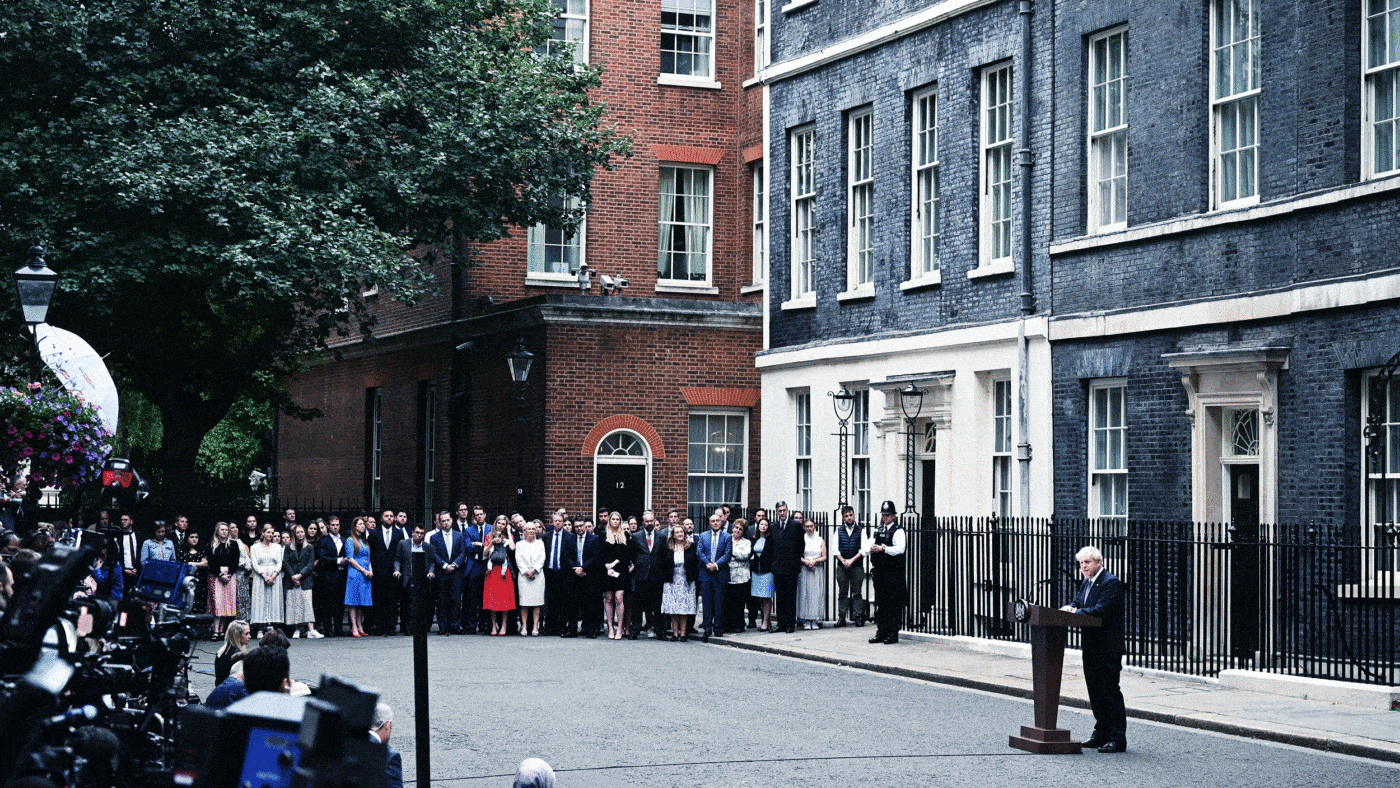If his downfall played out like a Shakespearean tragedy, then Boris Johnson’s rhetoric didn’t exactly match up. In an ungracious resignation speech, he blamed the ‘herd mentality’ of his parliamentary colleagues, and made the shrugging claim that ‘them’s the breaks’.
But the manner of his departure also helps to explain why it happened. Johnson has always been something of a lone wolf, building his career around a personal brand rather than being a team player. And the causes he has fought for have been uniquely suited to his gifts.
Brexit was a revolution. Wherever you stood in the referendum debate, it’s not very conservative with a small ‘c’ to overturn a trading relationship decades in the making and divide the country the way leaving the EU did. No one but Boris could have led that insurgency. Only he had the electoral appeal to convert the Red Wall, winning the huge majority needed to break the legislative logjam. He promised fundamental change and he delivered it.
But the core of his success also contained the seeds of his reversal. As Fraser Nelson argues, one of his big problems was that he tried to govern like a revolutionary (or at least presidential) leader within a parliamentary system. Meanwhile, as the sound and fury surrounding Brexit died down, the country quietly moved on – as evidenced by the fact that Keir Starmer now says Labour would not rejoin the single market or reinstate free movement. As Stewart Slater wrote on these pages, democracy is working. The revolution, though, has devoured its children.
So where does that leave us now? Britain has a soaring cost of living crisis, strikes, huge backlogs in our public services and an NHS in desperate need of reform. There’s no good time for a country to be plunged into political stasis while a party chooses a new leader, but now it’s particularly bad. It’s especially regrettable as it’s rumoured that Johnson and Zahawi were planning to scrap the planned corporation tax hike on Monday. This should remain a priority for their successors.
The current interregnum is not without risks. One of Theresa May’s final acts was to legislate for Net Zero, which MPs nodded through out of good will. We are only now waking up to the true costs of such an ambitious project, and the distortions this arbitrary target might produce. The Tories may dismiss Labour’s calls for Johnson to stand down immediately, but they should insist on proper scrutiny of any legislation he puts forward in the next few weeks – especially the problematic Online Safety Bill, which is reportedly set to be rushed through.
Whoever takes over will have much to thank Johnson for: seeing through Brexit, destroying Corbynism, the success of the vaccine rollout and his global leadership on Ukraine. On that last especially, the next Prime Minister will want to continue Johnson’s legacy, and indeed must do so.
But the next Tory leader must also unite the Party by articulating a clearer vision of what it stands for: growth, enterprise, prosperity, individual liberty, the rule of law and the right of our allies to self-determination.
That’s the easy bit, The real challenge is to develop a policy platform that will convince voters they are better off under a Conservative government – or as Johnson might put it, to get it done.
Click here to subscribe to our daily briefing – the best pieces from CapX and across the web.
CapX depends on the generosity of its readers. If you value what we do, please consider making a donation.


